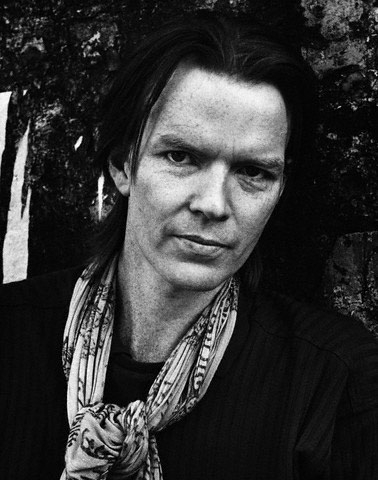
In honor of the passing of Mr. Jim Carroll, I found an interview with him that I did one month after 9/11, in Saratoga, CA, at a reading from Void of Course. In it, he discusses the effect of the WTC bombing on life and art. Originally published October 24, 2001.
Jason Louv: A lot of your work, especially your diaries, have been about NY and living in it and being a part of it as a city. Are recent events going to affect your work at all?
Jim Carroll: Yes. Yes. I mean it changes my past work, it changes everybody’s past work. But everybody’s work is always changed, with every new book that a person writes. You look at a person who maybe influenced that person in a different way you know? You know when Beckett started writing, we looked at Joyce’s books differently. But, when something like this happens, the psyche of America is changed, you better believe that it changes things. You know, I say in The Basketball Diaries, “I know now that I want to be a writer, I feel it stronger each day.” Then I say that I want to have my writing powerful enough so that one day I’ll write a book that’s 8 pages long, and everytime you turn the page a different section of the Pentagon will explode. Solid.
I’d forgotten all about that. I’m surprised nobody’s come knocking on my door.
JL: In The Basketball Diaries you talk a lot about “growing up in the shadow of the bomb,” and that at least contributing to your interest in drugs. What do you think of kids in New York now growing up in the shadow of what’s happened?
JC: I don’t know. My ex-wife and her husband have two children who are pretty close with them and I think they get a lot of love. But I look at the kids, I mean one of them is ten but she’s very precocious, the other one is eight. I can see in the ten-year-old a certain fear that I was feeling during the bomb years. She wants to be around her mom, you know, she doesn’t want to go to school. And with the eight-year-old even more so.
I imagine that their fear, now, most kids in America, their fear is that they’ll be drafted, you know? And have to fight a war. I know that’s true with a couple of young writers I know who are like 20, 21. They don’t want to fight in a war, they don’t really believe in what we’re doing in Afghanistan. I mean, of course they’re against Bin Laden, but they live in a different reality then other people.
JL: In The Basketball Diaries it seems the early entries are about your fear of the world almost, a lot of it in connection with the bomb. Is that something that lead to your growth as a writer?
JC: Um, not really. I didn’t have a fear of the world, I just had a fear of the uncertainty of the bomb. It wasn’t uncommon. I felt it a little more than most people, I think.
I remember my brother didn’t feel it as much, and he was teasing me during the Cuba crisis, you know? On the other hand, we’d sneak up and stay up late to watch the Friday night scary movie, and he wouldn’t be able to sleep and have nightmares, and I’d have no trouble sleeping. You choose your poison.
With poetry it has no effect on me at all. The prose I write, you know about my life. Forced Entries and The Basketball Diaries are about my life. That street-rat style. I want to write books where I’m putting down my life, that rap rhythm is very natural to me. Whereas, with poetry, from the very beginning, I always wanted to write it to take me out of my life. I wanted to use poems to make the mundane less mundane and what was intangible more tangible, you know? Do both at once. That’s why my early poems have a certain erudition to them.
When I started doing rock and roll, certain critics who had already read The Basketball Diaries referred to me as a beat poet. But I wasn’t a beat poet at all. My poems were influenced by the French Surrealists and German poets like Rilke. Poetry was completely different for me, you know? And so any kind of bomb fear that was in my youth, when I wrote poems I wrote to get away from that, you know? I didn’t want it intruding in any kind of imagery or anything. I’ve never been a big fan of political poetry. It usually winds up being incredibly boring and mediocre.
JL: Do you have any words to young people who are maybe in that same space that you were in as a young person and as a young writer?
JC: The most important thing that you have to do, especially when you get out of college, all that learned trivia, all that knowledge that you learned, the best thing to do, is to transform knowledge into wisdom, and to transform ideals into principles. To transform knowledge into wisdom is the most important goal you should set for yourself when you get out of college. Anyone who wants to understand their life and live it right and not have to look back on it and realize “I never did a thing I liked doing. My life was a series of compromises.” I can’t imagine anything sadder, especially in these times. No matter what you think about politically, you’ve got to keep your own life in order, man, because no one else is going to do it for you, especially now. Just follow what you believe.